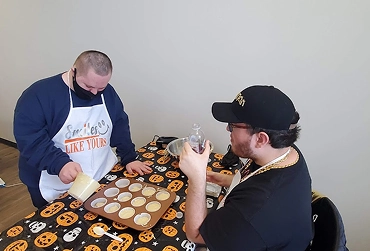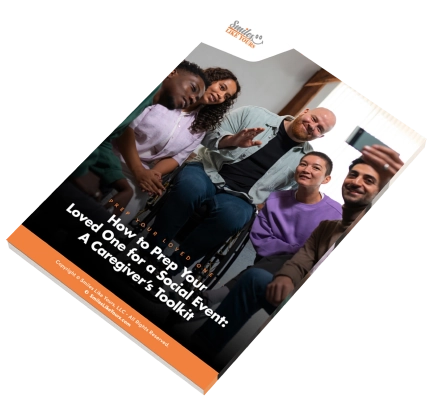Strong social connections are essential for a fulfilling life. Yet for many adults with developmental disabilities, communication and relationship-building can present unique challenges. This is where social skills programs for developmental disabilities make a transformative difference.
In Virginia, particularly in Henrico, these programs are linked closely with independent living support for DD and tailored activities for developmental disabilities. Together, they create a supportive ecosystem that empowers individuals to grow socially, emotionally, and practically—leading to greater independence and confidence.
Why Social Skills Programs Are Essential
Social skills are the foundation of daily life. Whether it’s greeting a neighbor, collaborating with coworkers, or joining a community event, communication plays a central role.
Adults with developmental disabilities may face challenges in:
-
Understanding social cues
-
Starting or maintaining conversations
-
Managing emotions in group settings
-
Building long-term friendships
Social skills programs address these needs through structured lessons, role-play exercises, and real-world practice, creating safe opportunities for learning.
Families can explore tailored programs at Smiles Like Yours.
What Happens in a Social Skills Program?
These programs are designed to be interactive, engaging, and practical. A typical session may include:
-
Role-Playing – Practicing conversations or group interactions.
-
Games and Activities – Encouraging teamwork and cooperation.
-
Communication Training – Learning how to express needs clearly and respectfully.
-
Emotional Regulation – Strategies for handling frustration, anxiety, or conflict.
Programs are often held in small groups, allowing participants to learn at their own pace with encouragement from peers.
The Connection to Independent Living Support
Social skills are a critical stepping stone toward independence. Independent living support for DD often incorporates social programs to prepare adults for challenges such as:
-
Managing interactions with landlords, coworkers, or neighbors
-
Navigating public spaces like grocery stores or libraries
-
Advocating for personal needs in healthcare or housing settings
By learning these skills in a supportive environment, individuals gain confidence in their ability to live more independently. Families can learn how to begin this journey via the start page.
Tailored Activities for Developmental Disabilities
No two individuals are alike, which is why tailored activities for developmental disabilities are so important. These activities align with personal goals and abilities, whether that means practicing small talk, learning how to use public transportation, or participating in recreational outings.
For example:
-
An adult who loves cooking might join a group cooking class to build social interaction and life skills simultaneously.
-
Someone interested in art could attend a creative workshop to express themselves while practicing communication.
Families can see real-world examples in our gallery.
Benefits of Social Skills Programs
-
Improved Confidence – Participants feel more comfortable engaging in conversations.
-
Greater Independence – Skills transfer into everyday activities.
-
Enhanced Relationships – Building friendships and support networks.
-
Reduced Isolation – Participants feel connected to their community.
These benefits extend not just to participants but also to caregivers, who see their loved ones grow in meaningful ways.
Community Integration in Henrico, VA
Henrico is home to a variety of disability services that emphasize inclusion. Social skills programs are often paired with:
-
Community outings
-
Day programs
-
Developmental disability events
This ensures that the skills learned aren’t just theoretical—they are practiced in real community settings, making growth sustainable and lasting.
How Caregivers Can Support Social Growth
Caregivers play an essential role in reinforcing social skills at home and in daily life. Strategies include:
-
Practicing conversations during meals or family activities
-
Encouraging participation in community events
-
Celebrating progress, no matter how small
-
Using supportive communication tools such as visual schedules or social stories
Families can also find opportunities to connect with providers at open house events.
Smiles Like Yours: Supporting Social and Life Skills
At Smiles Like Yours, we know that strong social skills open doors to new opportunities. Our programs focus on:
-
Interactive sessions designed around individual needs
-
Activities that combine fun with learning
-
Opportunities for independent living practice
-
Inclusive events that encourage connection
To learn more about our offerings, visit our services page or reach out via our contact form.
Getting Started
If you or your loved one could benefit from a social skills program, taking the first step is simple:
-
Review available services to find a good fit.
-
Explore locations in Henrico and beyond.
-
Connect with our team through the contact page for guidance.
Conclusion
Social skills programs for developmental disabilities do more than teach communication—they unlock potential. When paired with independent living support for DD and tailored activities for developmental disabilities, these programs prepare individuals to thrive socially and practically.
In Henrico and across Virginia, organizations like Smiles Like Yours are building bridges toward independence, confidence, and community inclusion—one conversation at a time.



